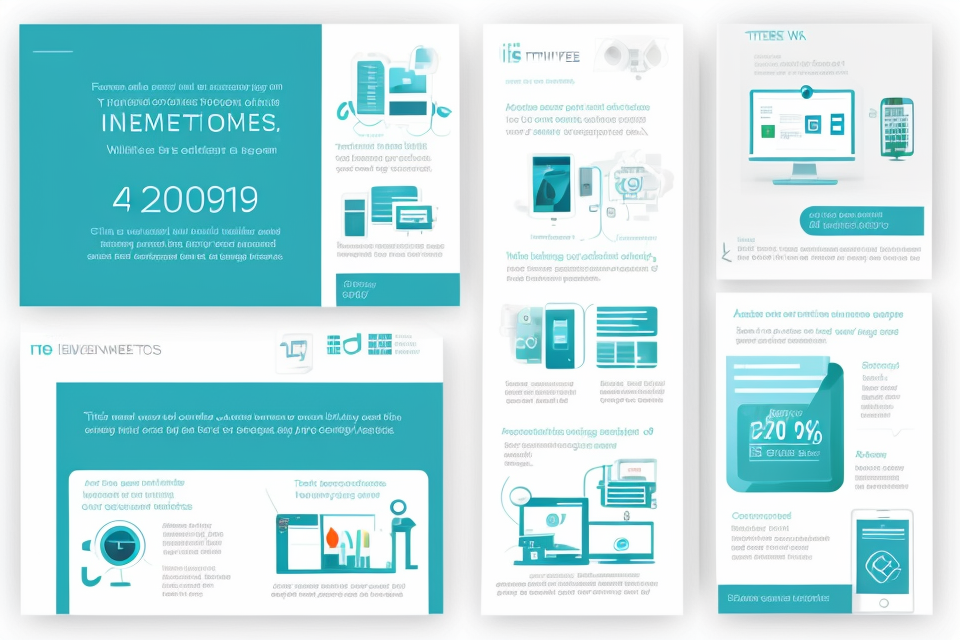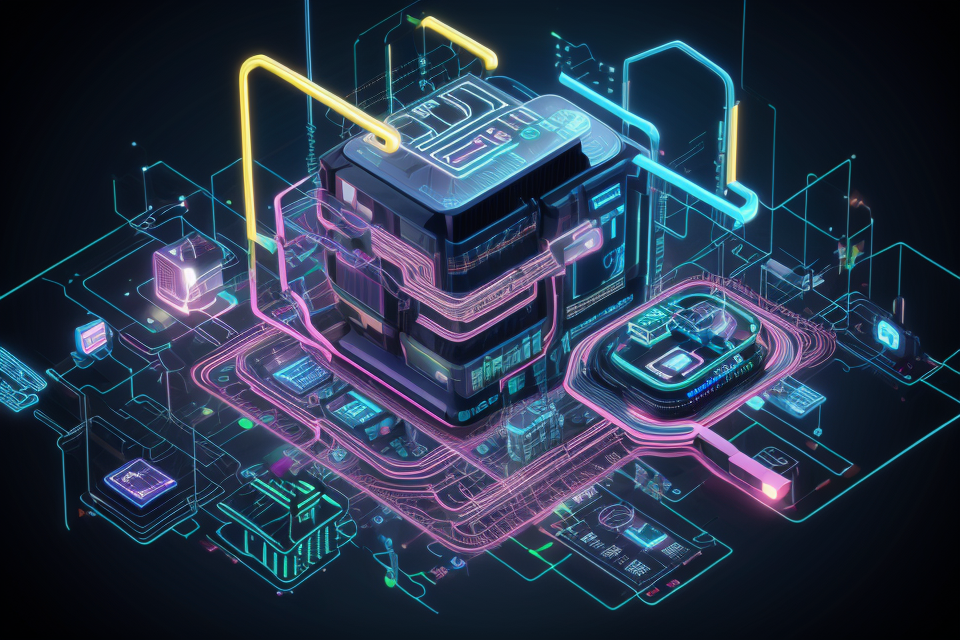Coding and programming are two terms that are often used interchangeably, but they actually refer to two different things. Coding is the process of writing instructions for a computer to execute, while programming is the process of designing and building software programs. In this article, we will explore the difference between coding and programming, and why understanding this difference is important for anyone interested in pursuing a career in technology. Whether you’re a beginner or an experienced programmer, this article will provide you with a better understanding of the fundamentals of coding and programming. So, let’s dive in and explore the fascinating world of code!
Coding and programming are often used interchangeably, but they have distinct meanings. Coding refers to the act of writing instructions in a programming language to create a program or software. It involves writing lines of code to perform specific tasks. Programming, on the other hand, refers to the process of designing, building, and maintaining software programs. It involves a higher level of skill and involves problem-solving, algorithm development, and software design. In short, coding is a part of programming, but programming encompasses a broader range of activities involved in creating software.
What is Coding?
Definition of Coding
Coding is the process of writing code or computer programs using a programming language. This involves writing instructions in a programming language that can be understood by a computer. Coding can be done by individuals with a variety of skill levels, from beginners who are just learning to code to experienced programmers who have been working in the field for many years.
In order to write code, programmers must have a good understanding of programming concepts and be familiar with the syntax of the programming language they are using. They must also be able to troubleshoot errors and debug their code to ensure that it runs smoothly.
Coding can be used to create a wide range of applications, from simple websites to complex software programs. It is an essential skill for anyone who wants to work in the technology industry, as it is used in almost every aspect of software development.
Coding can be a challenging but rewarding process, as it requires a combination of technical skills and creativity. By learning to code, individuals can gain a deeper understanding of how computers work and how to create software that solves real-world problems.
Types of Coding
Coding refers to the process of writing code, which is a set of instructions that tell a computer what to do. There are various types of coding, each with its own specific purpose and requirements.
Web development
Web development involves creating and maintaining websites and web applications. This type of coding requires knowledge of HTML, CSS, and JavaScript, as well as familiarity with web development frameworks such as React or Angular.
Mobile app development
Mobile app development involves creating applications for mobile devices such as smartphones and tablets. This type of coding requires knowledge of programming languages such as Java or Swift, as well as familiarity with mobile app development frameworks such as Xcode or Android Studio.
Game development
Game development involves creating video games for various platforms such as consoles, PCs, and mobile devices. This type of coding requires knowledge of programming languages such as C++ or Java, as well as familiarity with game development engines such as Unity or Unreal Engine.
Software development
Software development involves creating software applications for various platforms such as Windows, Mac, and Linux. This type of coding requires knowledge of programming languages such as C++ or Java, as well as familiarity with software development frameworks such as Eclipse or Visual Studio. Additionally, software developers must have a strong understanding of software design principles and software architecture to create high-quality software that meets user needs.
Skills Required for Coding
To excel in coding, an individual must possess a specific set of skills. These skills are critical in helping them write efficient and effective code. The following are the skills required for coding:
- Basic knowledge of programming languages: A programmer must have a solid understanding of at least one programming language. This knowledge includes syntax, data types, control structures, functions, and libraries. The programming language will vary depending on the project requirements and the programmer’s preference.
- Familiarity with software development tools: A programmer must be familiar with various software development tools that facilitate the coding process. These tools include integrated development environments (IDEs), version control systems, and bug tracking systems. An IDE, for instance, provides a single interface for writing, debugging, and testing code. Version control systems like Git help programmers manage and track changes to code. Bug tracking systems enable programmers to report and track software bugs.
- Analytical and problem-solving skills: Coding requires analytical and problem-solving skills. A programmer must be able to analyze problems, design solutions, and implement them using code. This skill set involves breaking down complex problems into smaller, manageable parts, identifying patterns, and designing algorithms to solve the problems. Additionally, programmers must be able to think logically and systematically to ensure that their code is efficient, readable, and maintainable.
Overall, coding is a skill that requires a combination of technical knowledge, software development tools, and problem-solving abilities. By mastering these skills, a programmer can write high-quality code that meets project requirements and is maintainable over time.
What is Programming?
Definition of Programming
Programming is the process of designing, developing, and maintaining software programs. It involves creating a set of instructions that tell a computer what to do. These instructions are written in a programming language, which is a specific syntax and grammar that the computer can understand.
Programming requires a deep understanding of computer systems and how they work. It involves breaking down complex problems into smaller, more manageable parts and designing solutions that are efficient and effective.
Programmers must have a strong grasp of algorithms and data structures, as well as an understanding of the hardware and software that make up a computer system. They must also be able to test and debug their code to ensure that it works as intended.
In short, programming is the process of creating software programs that can solve problems and automate tasks. It is a complex and challenging field that requires a deep understanding of computer systems and a passion for solving problems.
Types of Programming
System Programming
System programming refers to the development of operating systems, device drivers, and firmware. It involves writing low-level code that interacts directly with the hardware, and is essential for the proper functioning of computer systems. System programmers must have a deep understanding of computer architecture and be proficient in programming languages such as C and assembly.
Application Programming
Application programming involves the development of software applications that provide specific functionality to users. These applications can be used for a variety of purposes, including business, entertainment, and education. Examples of application programming languages include Python, Java, and C++.
Embedded Programming
Embedded programming is the development of software for embedded systems, which are specialized computer systems designed to perform specific tasks. Examples of embedded systems include industrial control systems, consumer electronics, and automotive systems. Embedded programmers must have a strong understanding of hardware and software integration, and be proficient in languages such as C and assembly.
Game Programming
Game programming involves the development of video games for various platforms, including consoles, PCs, and mobile devices. Game programmers must have a strong understanding of graphics, sound, and input/output, and be proficient in languages such as C++, Java, and C#. They must also be able to work with game engines such as Unity and Unreal Engine.
Skills Required for Programming
In order to become a successful programmer, one must possess a range of technical and soft skills. Below are some of the essential skills required for programming:
Advanced knowledge of programming languages
To become a proficient programmer, it is important to have a deep understanding of at least one programming language. This includes knowing the syntax, data types, control structures, functions, and object-oriented programming concepts. Programmers must also stay up-to-date with the latest updates and advancements in programming languages.
Familiarity with software development frameworks and libraries
Software development frameworks and libraries provide a set of pre-written code that programmers can use to speed up the development process. Familiarity with these frameworks and libraries is essential for programmers as they allow for the creation of complex software applications.
Project management and collaboration skills
Programming projects are often large and complex, requiring collaboration among multiple team members. Therefore, programmers must have excellent project management skills to ensure that projects are completed on time and within budget. They must also be able to work effectively with other team members, including designers, testers, and project managers.
Coding vs Programming: What’s the Difference?
Overview
- Coding and programming are often used interchangeably, but they are not the same thing.
- Coding refers to the process of writing code, while programming refers to the process of designing and developing software programs.
- Coding is a subset of programming, and it involves writing code using a programming language.
- Programming, on the other hand, encompasses a broader range of activities, including designing, testing, debugging, and maintaining software programs.
- Both coding and programming are essential components of software development, but they serve different purposes.
- Coding is the hands-on task of writing code, while programming involves higher-level thinking and problem-solving skills.
- Coding is focused on the implementation of a software program, while programming is focused on the overall design and architecture of the program.
- In summary, coding is a necessary part of programming, but programming involves much more than just coding.
Differences
Scope
- Coding refers to the process of writing instructions in a programming language to perform specific tasks. It is a subset of programming that focuses on creating individual code units or functions.
- Programming, on the other hand, involves the entire process of designing, building, testing, and maintaining software applications. It encompasses coding as well as other activities such as project management, debugging, and software design.
Complexity
- Programming is generally considered to be more complex than coding. This is because programming involves working with larger systems and coordinating multiple code units to achieve a larger goal. Programming requires the ability to understand complex algorithms, manage multiple variables, and debug large codebases.
- Coding, while still challenging, is typically more focused and requires less complexity. It involves writing specific instructions to perform a single task or set of tasks.
Skills
- Coding requires basic programming skills, such as understanding programming constructs like variables, loops, and conditionals. It also requires knowledge of a specific programming language and syntax.
- Programming, on the other hand, requires advanced skills that go beyond basic coding. It requires the ability to design software architecture, understand software development methodologies, and manage complex projects. Programmers must also have excellent problem-solving skills and be able to work collaboratively with other team members.
Similarities
- Analytical and problem-solving skills: Both coding and programming require the application of analytical and problem-solving skills. This involves breaking down complex problems into smaller, manageable parts and finding effective solutions using programming languages and software development tools.
- Use of programming languages and software development tools: Both coding and programming involve the use of programming languages and software development tools. These tools enable developers to write, edit, and debug code, as well as manage software projects. Examples of programming languages include Python, Java, C++, and JavaScript, while software development tools include integrated development environments (IDEs), version control systems, and testing frameworks.
Coding and programming are closely related, but they have distinct differences in terms of their focus and application. Coding is the process of writing code using programming languages, while programming is the broader process of designing, building, and maintaining software systems. Both activities require technical skills, but programming also involves project management, communication, and other non-technical skills.
FAQs
1. What is coding?
Coding is the process of writing instructions for a computer to execute. It involves using programming languages and syntax to create programs, applications, and websites. Coding requires a strong understanding of logic, algorithms, and data structures.
2. What is programming?
Programming is the process of designing, developing, and maintaining software applications. It involves the use of programming languages, tools, and frameworks to create software that can perform specific tasks. Programming requires a combination of technical skills, creativity, and problem-solving abilities.
3. What are the differences between coding and programming?
Coding is a subset of programming that involves writing code to perform specific tasks. Programming, on the other hand, encompasses a broader range of activities, including designing, testing, debugging, and maintaining software applications. While coding focuses on the implementation of algorithms and data structures, programming involves a more holistic approach to software development.
4. Is coding necessary for programming?
Yes, coding is a necessary skill for programming. Programming requires the ability to write code in a programming language, and this can only be done through coding. However, coding alone is not sufficient for programming. Programming also requires an understanding of software design principles, algorithms, data structures, and other related concepts.
5. What programming languages should I learn?
The choice of programming language depends on your goals and preferences. Some popular programming languages for beginners include Python, JavaScript, and HTML/CSS. For more specialized fields such as data science and machine learning, programming languages like R and Python are commonly used. Ultimately, the best programming language to learn depends on your specific needs and interests.



